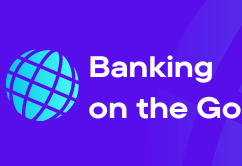Online banking has revolutionized the way we manage our finances, offering convenience and accessibility like never before. However, with these benefits come significant risks, particularly in the form of online banking scams. This article explores the latest news on online banking scams, the various methods scammers use, and practical steps you can take to protect yourself.
The Rise of Online Banking Scams
Online banking scams have been on the rise, with cybercriminals continuously evolving their tactics to exploit vulnerabilities in digital banking systems. According to recent reports, the number of online banking fraud cases has surged, causing significant financial losses for individuals and institutions. These scams not only result in monetary losses but also erode trust in the digital banking system.
Common Types of Online Banking Scams
Understanding the common types of online banking scams is crucial for staying vigilant. Phishing scams, where fraudsters send fake emails or text messages pretending to be from legitimate banks, are among the most prevalent. These messages often contain links to counterfeit websites designed to steal your login credentials. Other common scams include malware attacks, where malicious software is installed on your device to capture sensitive information, and vishing (voice phishing), where scammers call pretending to be bank representatives.
Also Read: The Latest Australia Online Banking News: Updates and Insights
Latest News on Online Banking Scams
Recent news highlights a significant increase in sophisticated online banking scams. For instance, there have been reports of scammers using advanced techniques such as SIM swapping to gain control of victims’ phone numbers and intercept two-factor authentication codes. Additionally, some fraudsters are exploiting vulnerabilities in banking apps to execute unauthorized transactions. The media has also covered large-scale data breaches, where hackers gain access to vast amounts of personal information, further fueling the rise in online banking scams.
Case Studies: High-Profile Online Banking Scams
Several high-profile cases have drawn attention to the severity of online banking scams. One notable case involved a major financial institution where scammers managed to siphon off millions of dollars by exploiting security loopholes. Another case saw individuals losing their life savings after falling victim to a sophisticated phishing scheme. These incidents underscore the importance of robust security measures and consumer awareness.
How to Recognize Online Banking Scams
Recognizing the signs of an online banking scam can help you avoid falling victim. Be wary of unsolicited emails or messages asking for your banking details. Legitimate banks will never ask for your password or PIN via email or phone. Look out for spelling and grammatical errors in communications, which are often indicators of fraudulent messages. Always verify the sender’s email address and avoid clicking on suspicious links.
Protecting Yourself from Online Banking Scams
Protecting yourself from online banking scams requires a proactive approach. Ensure that your devices have up-to-date antivirus software and firewalls. Use strong, unique passwords for your online banking accounts and enable two-factor authentication wherever possible. Regularly monitor your bank statements and report any suspicious activity immediately. Avoid using public Wi-Fi for banking transactions, as these networks are often unsecured and vulnerable to hacking.
What to Do If You Fall Victim to a Scam
If you suspect that you have fallen victim to an online banking scam, act quickly to minimize the damage. Immediately contact your bank to report the incident and follow their instructions. Change your passwords and secure your accounts. It’s also advisable to file a report with your local law enforcement and cybersecurity authorities. Many banks offer fraud protection services, so inquire about your options for recovering lost funds.
The Role of Banks in Preventing Scams
Banks play a crucial role in preventing online banking scams. Financial institutions continuously invest in advanced security technologies to protect their customers. These measures include encryption, biometric authentication, and real-time fraud detection systems. Banks also conduct regular security audits and provide educational resources to help customers stay informed about potential threats.
The Future of Online Banking Security
The future of online banking security lies in the continued development of advanced technologies and increased collaboration between financial institutions, regulatory bodies, and consumers. Emerging technologies such as artificial intelligence and blockchain hold promise for enhancing security and reducing the risk of fraud. Meanwhile, regulatory frameworks are evolving to address the growing threat of cybercrime, ensuring that banks adhere to stringent security standards.
Conclusion
The rise in online banking scams highlights the importance of staying informed and vigilant. By understanding the latest news and trends in online banking fraud, recognizing the signs of scams, and taking proactive measures to protect yourself, you can safeguard your finances in the digital age. Banks and regulatory bodies are also playing a critical role in enhancing security and protecting consumers. As technology continues to evolve, so too will the methods of cybercriminals, making ongoing education and vigilance essential for everyone.
FAQs
What are online banking scams?
Online banking scams are fraudulent activities where cybercriminals use various tactics to steal personal and financial information from individuals using online banking services. These scams can lead to unauthorized transactions, identity theft, and significant financial losses.
What are some common types of online banking scams?
Common types of online banking scams include:
- Phishing: Fraudulent emails or messages pretending to be from legitimate banks to steal login credentials.
- Malware Attacks: Malicious software installed on devices to capture sensitive information.
- Vishing: Voice phishing scams where fraudsters call pretending to be bank representatives.
- SIM Swapping: Scammers gain control of victims’ phone numbers to intercept two-factor authentication codes.
What is the latest news on online banking scams?
Recent news highlights a significant increase in sophisticated online banking scams. Scammers are using advanced techniques like SIM swapping and exploiting vulnerabilities in banking apps. There have also been large-scale data breaches, further fueling the rise in online banking scams.
How can I recognize an online banking scam?
To recognize an online banking scam:
- Be wary of unsolicited emails or messages asking for banking details.
- Look for spelling and grammatical errors in communications.
- Verify the sender’s email address.
- Avoid clicking on suspicious links.
- Remember that legitimate banks will never ask for your password or PIN via email or phone.
How can I protect myself from online banking scams?
To protect yourself from online banking scams:
- Use up-to-date antivirus software and firewalls on your devices.
- Use strong, unique passwords for online banking accounts.
- Enable two-factor authentication.
- Regularly monitor bank statements and report suspicious activity.
- Avoid using public Wi-Fi for banking transactions.
What should I do if I fall victim to an online banking scam?
If you suspect you have fallen victim to an online banking scam:
- Immediately contact your bank to report the incident.
- Change your passwords and secure your accounts.
- File a report with local law enforcement and cybersecurity authorities.
- Inquire about fraud protection services and options for recovering lost funds.
What role do banks play in preventing online banking scams?
Banks play a crucial role in preventing online banking scams by:
- Investing in advanced security technologies like encryption, biometric authentication, and real-time fraud detection systems.
- Conducting regular security audits.
- Providing educational resources to help customers stay informed about potential threats.
What is the future of online banking security?
The future of online banking security involves:
- Continued development of advanced technologies like artificial intelligence and blockchain to enhance security and reduce fraud risks.
- Increased collaboration between financial institutions, regulatory bodies, and consumers.
- Evolving regulatory frameworks to address cybercrime and ensure banks adhere to stringent security standards.
How can I stay updated on the latest news about online banking scams?
To stay informed about the latest news on online banking scams:
- Regularly check news websites and financial blogs.
- Follow official websites of major banks.
- Subscribe to newsletters and follow banks on social media for updates and information on potential threats and security measures.















One thought on “Online Banking Scams: Latest News and How to Protect Yourself”